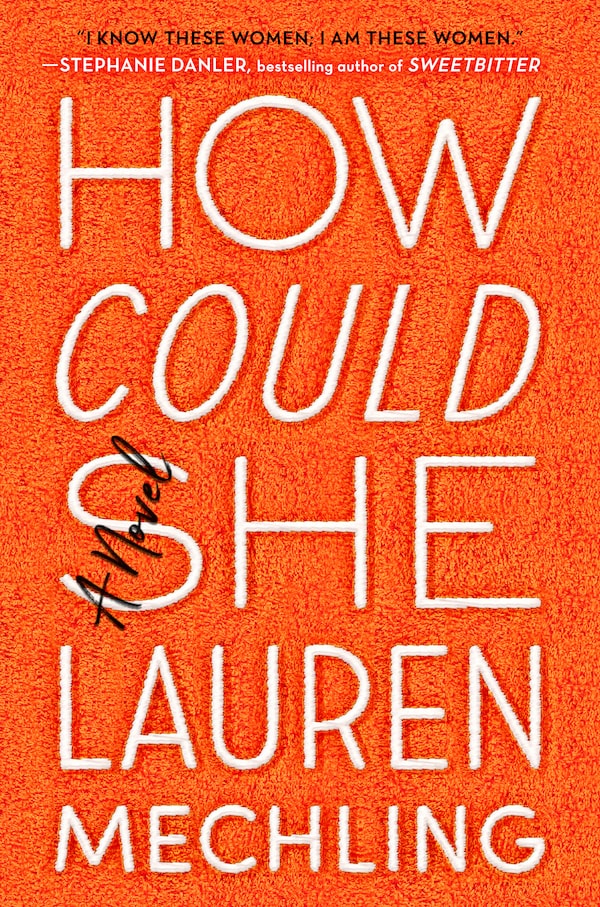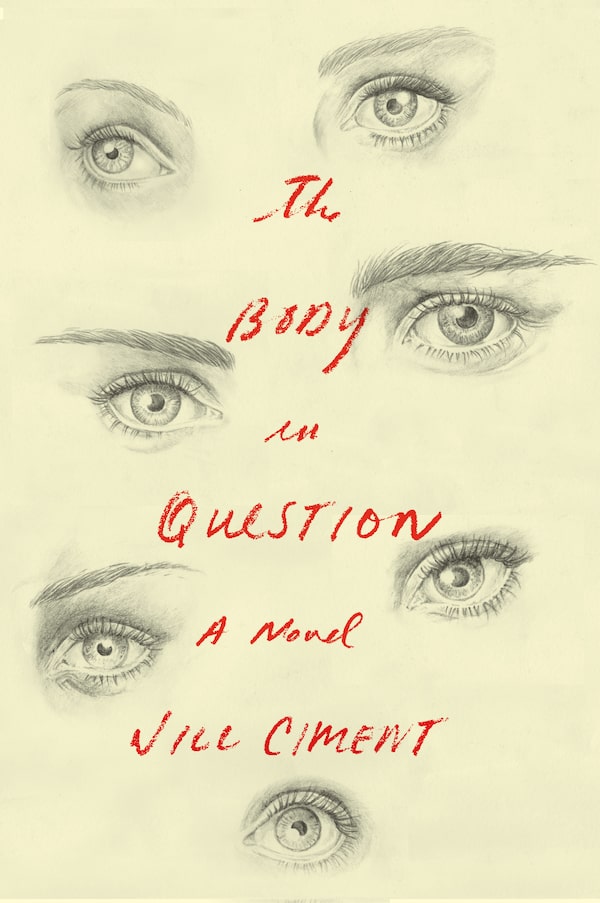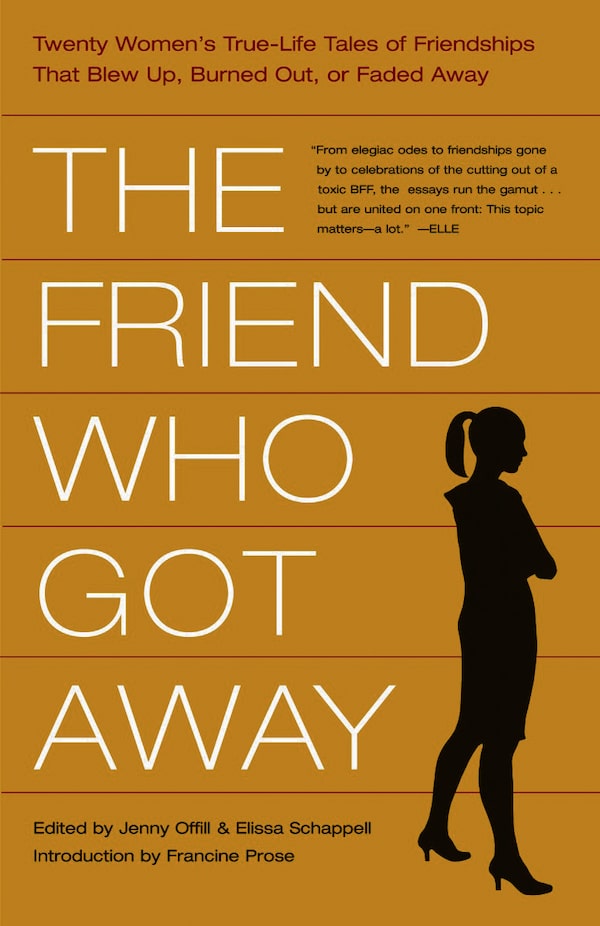
Handout
How do you end things with a friend? Without the band-aid of “It’s not you, it’s me” or the anesthetizing comfort of cutting off all contact – two frequently prescribed methods for easing the pain of extracting oneself from an ailing romantic relationship – a friend breakup can feel more acutely agonizing, more deeply personal than ending things with a partner. Friends remain in our orbit as friends of our other friends, impossible to move away from in any complete way. This is doubly true for women who, because of the marginalizing patterns laid out for us by history, depend on their network of female friendships for the kinds of support other social systems continue to fail to provide (see: free or low-cost childcare).
After Brooklyn writer Lauren Mechling was ghosted by a long-time friend, she channelled her feelings of disorientation into her work. How Could She is Mechling’s first novel for adult readers and it chronicles the complicated and awkward dissolution of friendships formed when its characters, now thirtysomethings, were a decade younger. Hopping back and forth between timelines and cities (the novel is set in both New York and Toronto – Toronto, in fact, was Mechling’s working title) the narrative follows three women as they attempt to navigate the complexities of friendships that don’t always make them feel good about themselves or their so-called friends.

Handout
The bonds between Mechling’s characters were forged in the irradiant light and heat of their early working years, when intertwined careers blurred the lines between coworker and friend. The fact that everyone was young and optimistic and struggling created a somewhat illusory idea of fellowship – a naive alliance that masked the underlying competition. Later on, everyone is still struggling with something, only it’s hidden behind money or job titles or Instagram filters. Insecurities and rivalries creep in, eventually taking centre stage in the theatre of friendship. “There’s definitely a push/pull contradiction,” Mechling says, “between the competition that naturally arises among women and the way that we’re told that we should not be competitive – that there should be this raw sense of sisterhood and selfless generosity. Women feel more pressure to be nice and to be friendly and to be warm while men can wear their coolness or their self-protectiveness more ably.” Women, Mechling says, are often behaving one way and feeling another: “There’s nothing wrong with competition, it’s just that it can get really sticky and dirty when it becomes this off-limits dark secret.”
If we’re not addressing how we’re really feeling, then it also becomes impossible to recognize when an unhealthy friendship needs to die. “Our reliance on each other, as women, can make it difficult to identify toxic or unwanted dynamics in close friendships with other women,” explains Kelli Maria Korducki, author of Hard To Do: The Surprising, Feminist History of Breaking Up. “There’s an unspoken contract in women’s relationships, a sort of ‘we’re sisters who are in this together’ vibe that I’ll recognize sounds corny and overgeneralizing but that’s a hill I’m prepared to at least wound myself on. Not only does this make it hard to come to terms with the idea that a friend relationship may need to be cut off, but it brings a layer of guilt and confusion to the process.”

Handout
As we age out of our self-obsessed teens and twenties, we’re blessed with the ability to see our relationships through a lens that doesn’t put us at the centre of every perceived slight or oversight. Our friends have complicated lives – children, careers, bouts of extreme lactose intolerance, and other microcosmic acts of god can take precedence over returning a text. It’s true that friendships can end in ways that rival even the most incendiary of romantic breakups. Lisa Taddeo’s Three Women documents how an awful secret separates a teenager from her close-knit circle while Kayleen Schaefer’s analysis of modern female friendship, Text Me When You Get Home, recognizes that the loss of a friendship between women can and should be mourned as deeply as one mourns the end of a romance. It’s also true that sometimes, such as in certain stories from Jenny Offill and Elissa Schappell’s collection of essays, The Friend Who Got Away, a friendship can die in the most mundane way – from a simple lack of oxygen.
“In tandem with writing the book,” Mechling says, “I’ve become more empathic or more willing to acknowledge that there are often so many sides of the story and so many stories happening at the same time. By obsessing over this topic, it’s become a richer prism to look at friendship through. I’m more thoughtful. That doesn’t mean that I’m a great friend, it just means that I’m more aware of every micro-movement and shift in energy or feeling that can happen between two people.”

Handout
Still, there are friendships that don’t evolve and grow as we do, and yet honesty can feel synonymous with brutality when someone initiates a friend breakup. “When a friend doesn’t want to be your friend anymore, it’s a huge rejection,” Mechling says. “It’s a greater personal rejection than when somebody doesn’t want to date you anymore because we’re more vulnerable with friends. They see you more clearly and when they’re not into what they see or they’re not into how they feel when they’re around you, that’s really hard to swallow. I don’t think it’s something that can be expressed over a painful coffee.”
With no formalized mechanism in place for ending a friendship, we’re left with very few alternatives: a funeral where soon-to-be-former friends cremate and/or bury an item symbolizing the death of their bond? A protracted and subtle “lean out”? Self-guided conscious unfriending à la Goop? A certified friend breakup mediator? (Note to struggling journalists: keep in mind as possible lucrative backup career.) Perhaps there’s an app we don’t know about?
It could be that ghosting, long-maligned in the online dating world, is actually our best, least painful option.
Expand your mind and build your reading list with the Books newsletter. Sign up today.